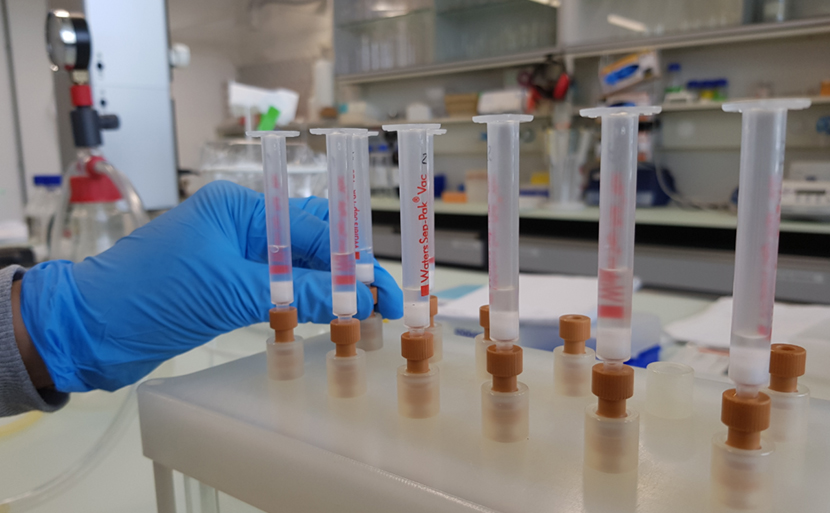Department Environmental Toxicology
Proteomics for ecotoxicology

Proteins play crucial roles in maintaining and directing cellular structure, metabolism and functions, through serving as structural components, enzymes, signaling molecules, transporters, ion pumps or transcription factors, etc. Extracellularly displayed or excreted proteins are also involved in cell-cell communication and development of tissue and organ architecture. It is therefore not surprising that molecular-level actions of many chemicals involve effects on the abundance, posttranslational modifications, structure or function of certain proteins. These changes can in turn affect cellular phenotypes and propagate further to the level of tissues and organs, finally manifesting at the whole organism level.
Proteomics focuses on studying proteins and their alterations as part of natural biological variation or in response to stimuli or stressors. Compared to transcriptomics, i.e. the analysis of mRNA transcripts’ abundance, proteomics have so far been less widely employed in toxicological research. This may have been due to technological challenges, higher cost and (perceived) lower amount of information obtained in a typical proteomics experiment compared to a transcriptomics study. However, driven by the developments in the biomedical arena, proteomics technologies have been constantly improving in the recent years, thus opening up exciting avenues for a broader application in the ecotoxicological research studies as well. Therefore, the bioanalytics team at the Department of Environmental Toxicology works on adapting mass spectrometry-based bottom-up proteomics analysis pipelines for various applications in ecotoxicology.
Depending on the research question, both global and targeted proteomics experiments can be designed.
Discovery-mode global proteomics can provide a broad overview of multiple processes and functions governed by proteins, allowing identification of specific components or pathways affected by exposure to a particular stressor. In terms of mass spectrometry analysis, both data-dependent acquisition (DDA) and data-independent acquisition (DIA) can be employed, with the latter offering an improvement in the sensitivity and reproducibility of label-free quantitation.
Specific proteins of interest identified through a global proteomics analysis or based on a particular hypothesis, can be studied by targeted proteomics methods, typically based on selected reaction monitoring (SRM). For example, we are employing targeted proteomics to glutathione S-transferases (GST), an important phase II biotransformation enzyme family involved in detoxification of electrophiles, in fish early life stages and cellular models.
Both global and targeted proteomics can also be employed to study post-translational modifications of proteins. For example, phosphorylation/dephosphorylation of proteins is known to be involved in signaling cascades playing important roles in basic cell physiology and cellular response to stressors. We are currently developing a pipeline for mass spectrometry-based targeted analysis of phosphorylation dynamics within the mechanistic target of rapamycin (mTOR) pathway, suspected to be involved in the mediation of chemical effects on growth in fish. The developed workflow could then be applied to study other protein networks. Mass spectrometry-based targeted proteomics assays could thus provide a valuable tool to study phosphorylation-based molecular signaling in fish, where this mechanistic aspect has been so far largely neglected due to challenges with obtaining species-specific antibodies for (de)phosphorylated proteins of interest.
Publications
Funding
Eawag


